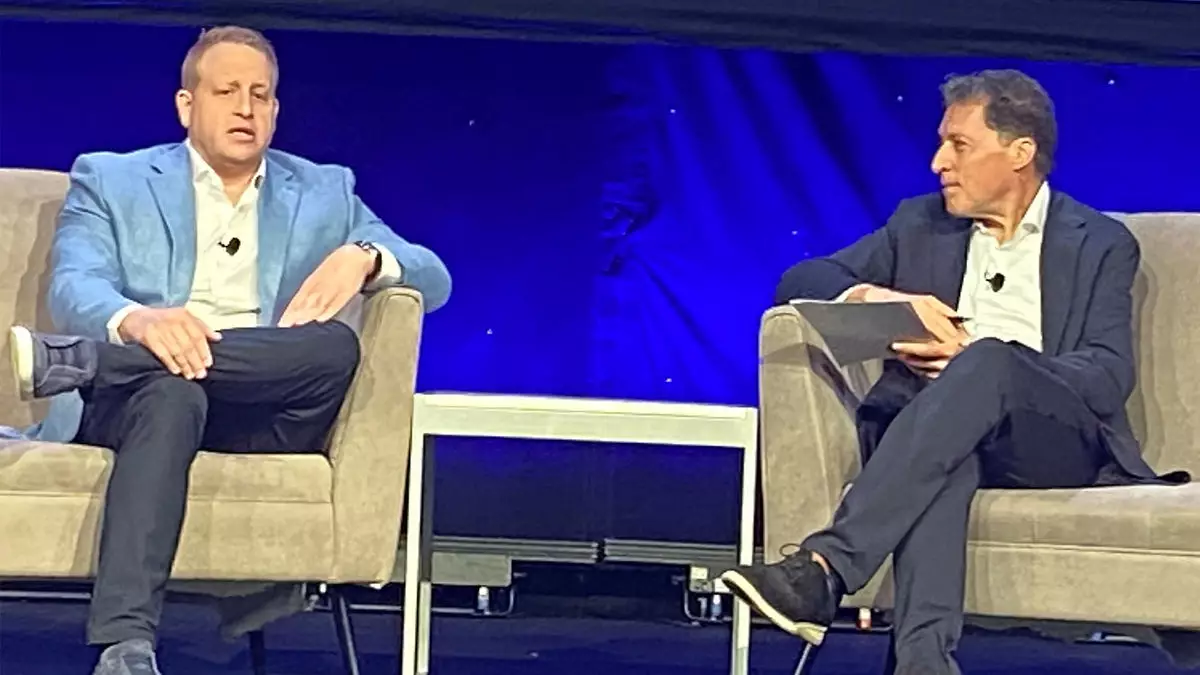The cruising industry has reached unparalleled heights in its financial achievements, yet it finds itself at a critical crossroad marked by increasing environmental scrutiny. Jason Liberty, CEO of Royal Caribbean Group and chairman of the Cruise Lines International Association (CLIA), emphasized this point at CruiseWorld. As governments, particularly in Europe, intensify their directives aimed at reducing emissions, cruise companies are under immense pressure to identify and deploy sustainable fuel alternatives. Liberty articulated a stark reality: while there are significant investments aimed at advancing technologies to lower emissions, a comprehensive strategy hinges on the availability of clean fuel sources that can be implemented affordably and at scale.
The challenge is twofold: not only must the industry innovate, but it must also respond swiftly to regulatory demands to avoid losing operating privileges in certain regions. Liberty stated that the cruise companies are not only racing against time but also against powerful environmental forces that could reshape their operational landscape if they fail to keep pace.
Despite the hurdles, Royal Caribbean Group has taken significant steps toward sustainability by adopting ambitious goals, such as reaching net-zero emissions by 2050, a commitment reflected in CLIA’s own aspirations. Remarkably, Liberty highlighted that the group achieved its 2025 emissions target ahead of schedule, a testament to its dedication to environmental stewardship. This proactive stance is not merely an operational imperative; it’s a critical component of the brand’s long-term viability. Furthermore, the plan to phase out older vessels by 2030 serves dual purposes: addressing emissions and aligning fleet offerings with evolving consumer expectations. As customers increasingly seek experiences that resonate with their values, outdated ships may not only be environmentally unfriendly—they may also undercut consumer appeal.
Another interesting aspect discussed by Liberty is the changing landscape of consumer preferences. He identified a trend where today’s consumers, especially younger generations, prioritize experiences over material possessions. With this in mind, cruise lines face intensifying competition not just from other cruise companies, but from alternative entertainment options that families might consider instead, such as concerts or themed vacations in vibrant destinations like Las Vegas or Orlando. Liberty illuminated the challenge: a family of four who has a limited budget for discretionary spending may choose to attend a highly sought-after event like a Taylor Swift concert rather than embark on a cruise.
This redefined competitive landscape urges the Royal Caribbean Group to innovate continually, curating cruise experiences that offer unparalleled value and excitement compared to land-based alternatives. The CEO stressed the need to “level up” the cruise experience, integrating elements that can rival these entertainment hotspots. By doing so, they can entice potential customers back to cruising and ensure relevance in a rapidly evolving market.
Interestingly, the company appears to have made headway in attracting new customers amidst daunting competition. Liberty revealed that over half of their guests this year comprised either first-time cruisers or individuals brand new to Royal Caribbean. Moreover, more than half of the company’s visitors are millennials or younger—a demographic that traditionally may not have identified cruises as an appealing way to spend their vacation time. This demographic shift highlights a successful repositioning of cruise offerings as appealing, modern, and aligned with the preferences of a younger audience.
Liberty posited that the prevailing perception of cruising has undergone a transformation, moving away from outdated stereotypes to a representation that more accurately reflects the diverse and enthusiastic experiences available. This shift requires constant effort from industry leaders to redefine and articulate what cruising means today, demonstrating a commitment to innovation and responsiveness to evolving consumer demands.
As the cruise industry sails into an uncertain future shaped by environmental expectations and competitive pressures, industry leaders like Jason Liberty are spearheading a transformative agenda. It is clear that the path forward will necessitate an unwavering commitment to sustainability alongside an innovative approach to marketing compelling cruise experiences. Only through embracing these challenges head-on can cruise lines hope to navigate the murky waters of the modern travel industry, ensuring lasting relevance and success for years to come.


Leave a Reply